Hands Down the Best Way to Kill Weeds and It’s Not Roundup
If you think a homemade weed killer could not possibly be effective, even potent, against weeds, think again! But first, a story …
In 1970, John Franz, a chemist for Monsanto, discovered that glyphosate is a potent herbicide that kills almost every plant material imaginable. In no time, the company gave its miracle weed killer the brand name Roundup.
Farmers, especially, went wild for Roundup. Just one problem: It was nearly impossible to kill the weeds without also killing their crops. So Monsanto sent its chemists back to work to develop glyphosate-resistant, or “Roundup ready crops” that have had their DNA altered (genetically modified or GMO) to allow them to be immune to glyphosate. Now farmers could spray with abandon and not worry about their crops.
To say that glyphosate, Roundup, and GMO foods have become a bit controversial would be, to put it mildly. There are some who say that glyphosate causes cancer in animals, and most likely humans, too. They insist that the side effects of long-term GMO food consumption are producing serious health risks for all living things. Despite all of this controversy and outcry about issues surrounding Roundup and GMO crops, so far the Environmental Protection Agency (EPA) has not forced Roundup off the market. It’s a hot-button issue, that’s for sure.
There is one provable and very compelling reason not to buy Roundup: It’s too expensive! Even if it were proven beyond a shadow of a doubt that Roundup is safe as water, I still wouldn’t shell out the high price for the stuff. I kill weeds like crazy with kitchen pantry items that are really cheap and non-toxic: white vinegar, ordinary table salt, and dishwashing liquid.
First, I will give you the ingredients, followed by two Weed Killer recipes using them. You probably have everything you need around your home, but if not, I’ve linked everything required and made a resources section at the end of the article.
White vinegar
Ordinary distilled white vinegar with a 5% acidity is cheap and works great. If you can find a higher acidity, even up to 20%, it will work faster, but the end results will be the same.
Table salt
Use the cheapest kind of salt you can find in the supermarket—NOT sea salt, rock salt, Epsom salts (Epsom salt, chemically, is not even close to table salt, trust me on that), or anything fancy. Just cheap iodized or un-iodized generic salt, also known as sodium chloride (NaCl).
Dishwashing liquid
You will be using only a few drops, so the brand doesn’t matter. The purpose of the soap is to break the surface tension of the vinegar so it sticks to the weeds, forcing them to absorb it more readily.
Weed Killer for Areas to be Replanted
If you have weeds in areas you want to replant, fill an ordinary garden sprayer with white vinegar and add about one teaspoon liquid dishwashing soap, like Blue Dawn or Meyer’s Clean Day. Apply the sprayer top and follow the instructions on the sprayer to get it ready to spray. That’s it. Seriously, it is that simple.
Pick a hot, dry day to spray weeds until saturated. They will wilt and shrivel up within hours. Be careful not to spray anything you want to live. However, do not worry about the vinegar killing anything below the soil. Because vinegar will not harm the soil, you can safely replant the area once the weeds have died.
Weed Killer for Areas Never to Grow Again
Mix two cups of ordinary table salt with one gallon of white vinegar to kill all vegetation in walkways, driveways, and other areas where you don’t want any living thing to grow again. Do this in a container larger than one gallon capacity so you have room for the salt. Apply the lid and shake to dissolve the salt. Salt dissolves more quickly in vinegar than in water, but it takes a bit of doing. It may not completely dissolve, but that’s okay.
Add 1 teaspoon of liquid dishwashing soap (this is to break the surface tension of the mixture so it will stick to the plant material you’ll be killing). Pour into an ordinary garden sprayer. Apply to weeds or grass on a dry, sunny day to areas you don’t want to see vegetation of any kind in the future.
The presence of salt in this recipe will eventually bring permanence to your weed killing. The salt will penetrate and leach into the soil. It may take several applications, but in time, the presence of salt will “sterilize” the soil in this area so that nothing will grow there. Plan well before you go this permanent route.
Non-toxic to Humans, Pets
These homemade weed killer recipes are not only cheap but also completely non-toxic to humans and animals. In fact, except for the soap (not toxic but not very tasty), you could have fun with the family tonight when you tell them you made the salad vinaigrette using 3 parts olive oil to 1 part weed killer!
Resources
As mentioned earlier, you likely already have everything you need for this fantastic weed killer. If not, I’ve created this Amazon resource list for your convenience, reference purposes, and to provide additional information and options.
Everyday Cheapskate participates in the Amazon Services LLC Associates Program, an affiliate advertising program designed to provide a means for us to earn from qualifying purchases at no cost to you.
More from Everyday Cheapskate
Please keep your comments positive, encouraging, helpful, brief,
and on-topic in keeping with EC Commenting Guidelines
Last update on 2024-05-01 / Affiliate links / Images from Amazon Product Advertising API

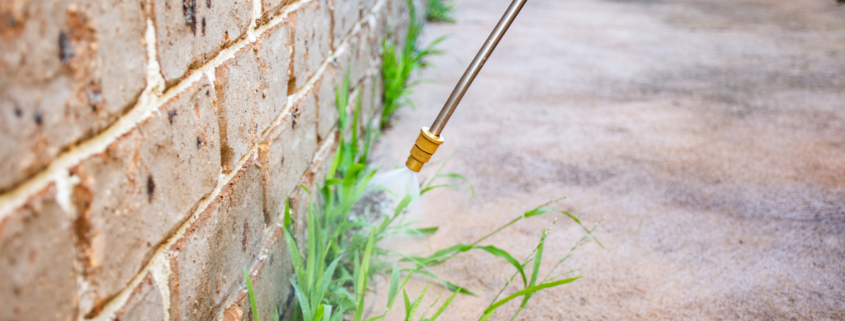







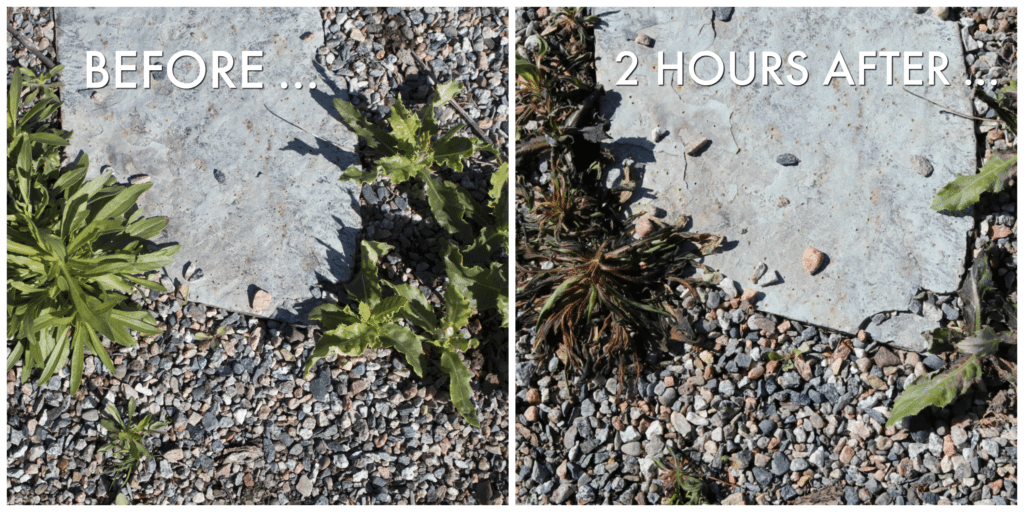








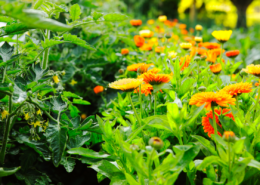
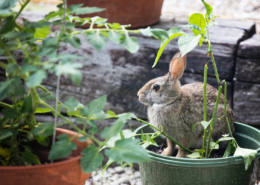
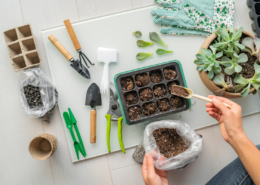
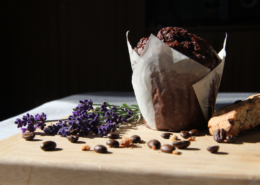



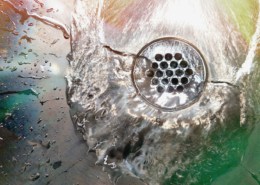
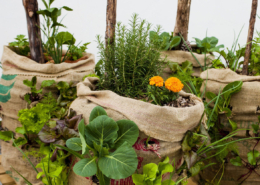


I have used a teakettle of boiling water for most areas. I don’t concern myself much with lawn weeds. Works like a charm.
But wouldn’t you rather poison the soil by adding sodium salt?
For one thing, salt has a much longer effect. Also, in my case I’m trying to get rid of weeds in my gravel driveway. Soil doesn’t belong there.
Whenever we have pasta, I use the leftover water while still hot to hit selected weeds. It works pretty well unless the plant has a really large root. Some plants need a second dose. Too bad it doesn’t go further and hit more weeds. The advantages are that you can hit a specific weed without killing wanted plants and the dissolved nutrients in the water help neighboring plants.
As an alternative to ridding your property of every possible unsightly weed: consider consuming the dandelion greens and picking the yellow flower heads before they blow out. You might want to find out what kind of ‘weeds’ you have and act accordingly. After many years of DDE (Daily Dandelion Elimination) every spring we had it with that method and made peace with the greens and just pulled the tops. Our Fiskars weed popper was great then. We have thistle, spotted knapweed, oxeye daisy and several other noxious and invasive weeds that we work on eliminating every year. Hand pulling is the most successful we’ve found.
There is a website, urbanfoodgarden.org, that may be of interest to those who don’t have to live with manicured lawns.
I don’t think most gardeners who would use this method are worried about every possible unsightly weed. I would like to see it used on the weeds that have invaded you yard that are on the state’s noxious weed list, e.g. old man beard clematis, english ivy, etc. We are after lots of other weeds as well (cat’s ear, potato weed, and lots of others that overtake the vegetable garden.
Our lawn has several non-grass plants. I love the yarrow; it looks a lot like grass and the occasional white flower is attractive.
This comment stream is very helpful! Thank you for the tips & pointers!
try SpeedZone, kills all broad leaf weeds and does not bother grass – with just one application. have been using it every year with amazing success…no weeds. it is a mirical spray.
Jack:
I have 2 large beds where many years ago I had a wild flower mix that contained Black Eyed Susan’s. They took over the beds. I pulled them out for years…thought I had been successful so I planted the beds with a perennial wild flower mix last fall and this year I have beds full of Black Eyed Susan’s. If I spray Speed zone will it kill this Broad leaf forever.
I do have ornamental grasses in there as well. Will the perennials which never bloomed come back next year?
A lot of questions, huh?
We tried this concoction this Spring on our front yard. We used Epsom salt instead of table salt from a recipe I found on Facebook. We sprayed it on dandelions in the front yard and it killed the leaves and the grass around the plant. However the dandelions quickly went to seed and the seeds blew away. I don’t recommend this method.
This is not an appropriate, research-based solution! You won’t see this recommended by trained personnel – it is not an ecologically sound sustainable gardening practice. (The University Extension Service trained Master Gardeners around the country are not paid or supported in any way by the chemical companies.) Keep in mind that just because something is “natural” or edible by humans that it is harmless. (For example, chocolate is great for humans, but a couple of ounces can kill your dog.) You are altering the chemical makeup of the soil with vinegar & salt. Vinegar must be used repeatedly to be effective (doesn’t kill the roots outright.) So you re adding acid to your soil, upsetting the natural balance, and perhaps killing or stunting beneficial bugs and bacteria that live there. Salt, as noted above, is a KILLER. In South Texas, the ground water already contains too much dissolved salt from fertilizers and salt water infiltration. This limits its use to a few salt-tolerant crops. If you live up North, look at what winter road salt does to the ditches & boulevards – only salt-tolerant plants will grow there, and many of those are weeds. Don’t assume because you don’t want anything to grow there, that the next tenant or homeowner will feel the same way.
So, before you embrace this as a weed control, look at the full ramifications. And maybe, just maybe, spend some time pulling those weeds – it’s great exercise.
haha, you’re welcome to come hand-pull the weeds on my 1/2 mile long driveway! 🙂
Any other suggestions besides pulling them?
Says the person that’s not handicapped. By the way, the grass is always greener on the sides of the road and in the ditches. The deer just seem to love that grass best (because of the salt content). Hand pulling is great for those who have the time. Now let’s get to the change the environment crap. Vinegar and salt will not leach the soil nor harm the environment. The general public is going to use man made chemicals so wouldn’t it be better if some started using natural stuff God made vs man made?
@ Sue in MN
You need a life.
You must be up all night panicking over things .
Geez.
Great informative article… thank you
The solution used in the Northeast is different than Salt..regardless, Salt is 100% natural and Organic..it really doesn’t poison the soil and bugs will relocate from the treated area! After 35 yrs of trial and error, the solution mentioned in this post is by Far the best idea..and it works very well! Salt itself will not stay in topsoil very long..Fertilizers do add other ingredients that will enhance Salt properties..but in No way does Salt hurt the soil,..or the Bugs!
The solution used in the Northeast is different than Salt..regardless, Salt is 100% natural and Organic..it really doesn’t poison the soil and bugs will relocate from the treated area! After 35 yrs of trial and error, the solution mentioned in this post is by Far the best idea..and it works very well! Salt itself will not stay in topsoil very long..Fertilizers do add other ingredients that will enhance Salt properties..but in No way does Salt hurt the soil,..or the Bugs!
ROFLOL – 115 acres- sure I’ll get right on it. I couldn’t pull an acre before I’d have to start all over again!
Applying salt is NOT a permanent solution. We all know that sodium chloride readily dissolves in water. Eventually the rain will wash the salt away. Just like in Jurassic Park, “Nature finds a way”. Believe me, I’d LOVE to find an easy solution for nothing to grow in an area for forever, or at least a decade. No such thing exists, and it certainly isn’t salt!
The world is a series of tradeoffs. Some of us would rather pick salt, which is cheap and safe for humans over nuking stuff with Roundup or pulling weeds. There’s no perfect solutions.
The reason it didn’t work for you is most likely because you used Epsom salt instead of table salt. Epsom ‘salt’ is not true Salt; true salt is Sodium. Sodium/Salt acts as a drying agent, which is why Sodium Chloride, aka table salt kills plants. Epsom ‘salt’ is actually a pure mineral compound of magnesium and sulfate in crystal form. It looks like salt crystals so it’s labeled ‘salt’, but it has no sodium chloride. In fact Epsom salt is used as a fertilizer or plant booster for many plants including roses and tomatoes. The vinegar alone would have done a much better job, probably, although they say vinegar will only kill the leaves or parts above ground and not a root. Sodium chloride or true salt will kill the entire plant, leaves stem, & root, BUT it will also sterilize the soil and nothing else will ever grow in that spot where true salt has been put.
Most everything Kathy said here is true except for the statement that Epsom salt is not a true salt. Here is the definition of a ‘salt’.
“any chemical compound formed from the reaction of an acid with a base, with all or part of the hydrogen of the acid replaced by a metal or other cation.” Magnesium sulfate is a salt; just not the kind that is effective at killing weeds.
I have a hill that I want it to be free of weeds so I have pulled them and used salt twice already and then suddenly tons of weeds popped up so I am definitely not convinced that salt kills all weeds and prevents anything else from coming up
Cant substitute epsom salt. Not the same in any way.
You must use salt.
Happy Thursday!!!
I have been singing the praises of the formula since March 3rd of this year & telling all of my friends!!! I finally got in my backyard to tackle the weeds growing in the alley alongside my fence. My husband doesn’t like for me to go into the alley, so I used the formula from my side of the fence. All of those weeds died & are still gone!!! The city if LA is extremely lousy on taking care of the alleys. I plan on giving the city councilman in my area the formula so that whatever city dept handles alleys in the city can use this formula to control the weed growth. My mind tells me this attempt will be futile, but I am going to do this anyway. I will continue to use this formula & tell people about it. I have a lot more to do my the backyard, but nothing pleases me more than to do this process myself. I also take time to dig up the roots of weeds then apply the solution. That has been effective for me. My husband still is NOT a believer in this process although he has seen spectacular results! I believe what I believe! N- joy HIS day!!
Andrea W – – you say: “praises of the formula” which one do you use please? I’d like to know what you mix & how many parts to water, etc.
Hello Andrea… You put a very long comment here about a formula that works and you want to tell everyone but then I don’t see anywhere in your comment give him the formula!… Are you going to share and if you did share here I don’t see it because there are unlimited comments so could you share it again and reply to my comment?
In Europe they have used salt to kill grass in the sidewalks. I remember my mother pouring salt in all the cracks where grass was growing. When the ground was wet we used to pull up the weeds and then put salt down. Worked every time.
Not a good idea- It will destroy the concrete.
Salt is a mild acid and lowers the pH in the concrete. The acidic reaction attacks
the concrete paste and aggregate, weakening the structure and strength of the
concrete. It also increases the pore size, allowing additional water and chemicals
into the concrete, which can exacerbate freeze/thaw cycle damage.
Thank you for letting me know that.
Back to Chemistry 101A. Salt is not acidic.
Table salt, which is sodium chloride (NaCl), is not an acid nor a base, but is a salt, as it is formed by the replacement of the H+ ion in Hydrochloric acid by a sodium ion.
The reason that salt damages concrete is that it is hygroscopic (it attracts and retains moisture). The excess moisture, accumulating wherever the salt solution penetrated, swells and cracks the concrete over time.
Glad I read the comments.
Nice cut and paste. Google University I see
i know right, how dare he use simple resources at hand
I’m in SE Texas. I’ve never found household vinegar to be effective in killing weeds! But I’ve sworn off Roundup. The higher percentage agricultural type vinegar seems to work….it’s an ongoing battle….had a Chinese Tallow tree removed but not the stump. It’s grown back over 6 feet now. /sigh/
Pound a copper nail into the trunk and watch it wither
& die
I’m gonna try it. Thanks.
Those things are the devil! I got one and can’t afford a tree chopper. SMH Dadgummit! Who thought them things were a good idea?
We had a black walnut stump that insisted on sending up shoots after being cut down. For several years. Sprayed with RoundUp. Knocked it back a bit, but always came back. What worked was a cup full of houseplant fertilizer (blue crystals) dumped in the dead center of the stump. Killed it! I think it over stimulates the plant or tree, and it dies from exhaustion 🙂
Yes!! We had the exact same scenario! Worked perfectly!
A cottonwood tree that was cut down continued to grow back in spite of spraying with various poisons, cutting again and again, and burning. I suggested that my client cut it back again and then build a compost pile over and around it. The diameter for the trunk was at least 4′. She put some inexpensive wire fencing around the trunk and filled it with leaves plus some vegetable and fruit peelings. The trunk began to decompose and never grew back again.
yes, those are trees from heaven (hell). I am out picking seedlings every day. Ignore the copper nail…nothing kills this crap except poison.
Take a drill and drill holes in the top of the salt. Fill the holes with agriculture grade vinegar and table salt. Should be dead within 6 months
I have used cornmeal with great success. This is a great site on how to use cornmeal effectively as a natural weed killer; http://www.gardeningknowhow.com/special/organic/cornmeal-in-the-garden.htm
Probably a good thing for my overspray mistakes.
Cornmeal doesn’t kill weeds, it is supposed to stop seeds from sprouting. Sort of an organic preen.
Cornmeal is also recommended on grass as an organic fertilizer.
Worms love to eat cornmeal.
I wonder why farmers do not use the vinegar-and-dish soap method?
I’m thinking because it’s much easier to just spray the entire area with Roundup, that’s the whole point of the GMOs, the Roundup won’t kill the crop, just the weeds….
and everything else. Glyphosate is very effective at killing. Do we really need it in the food chain? I would rather use gasoline or diesel to control weeds.
Diesel is the lesser of the two evils.
Using gasoline/diesel is one of the worst possible things you could use as a herbicide. I know it is standard practice in many places and is even recommended by agricultural “experts”, but come on! You are pouring refined hydrocarbon oils, napthalene, toluene and alkylbenzenes onto your soil. Not to mention that gasoline has benzene in it which is utterly carcinogenic. Diesel is very persistent in the soil and can also move into the water table. I am not a huge fan of glyphosphate, but please use it and not gasolene/diesel.
Oh and one more thing, don’t ever use salt as a herbicide. That is just as wrong headed as using hydrocarbons.
Because vinegar isn’t very effective, and salt is VERY bad for the soil.
Research online brings up what most internet advice about using vinegar on weeds fails to say: “acetic acid in the vinegar works to kill the leaves on the plant but not the root”. So repeated applications are necessary if using vinegar. It’s not a once-and-done thing.
Probably a good thing for my overspray mistakes.
The article mentions that it takes several applications for the salt to penetrate into the soil. That should kill the roots.
Or you could pour salt directly onto the vegetation then water Same results only faster
Re read the article. That was clearly stated.
Round-up isn’t a permanent solution either, and it costs a shitload more
I can buy Roundup for less than a dollar per gallon and a generic version for even less. If you go to a farm store and not the big box stores. It’s not premixed. I have an acre of yard with lots of uncultivated areas where weeds like to go. If I used your vinegar mixture, it would break me. I mix it up in 15 gal batches and it takes about two batches to spray all that I need to spray and it has to be 3 or 4 times as weed seeds can lie dormant for years before sprouting.
Not nearly as much as a blood cancer will break you.
A little Utube test of Roundup VS Vinegar. https://www.youtube.com/watch?v=Y5rPC45ut9E
If you buy the vinegar at higher percentages in a non-grocery store you can have the equivalent savings by deleting it to 5%. It most likely is also less expensive to start with.
i sure would like to know where you can get Roundup for a $1.00 or less
per gal
I buy the concentrate at a local farm store in 2 1/2 gal containers. I mix it 1 oz to the gal of water. It kills most weeds and makes all of them sick. Some weeds have a resistance and need to be sprayed a second time. Weeds will come back from seed so once and done doesn’t work for any herbicide. Using a preemergent, like Preem, will help but it also needs to be repeated
I believe Roundup works good but what is used to kill the weeds is like high dose of fertilizer so if you don’t keep using it weeds grow back more than when you first sprayed…Just like spraying for mosquito poison kills the weak and leaving the strong to breed… There natural ways to take care of all just need to do your homework
Lol. No where. Too funny
Roger, check the cancer stats in your area. Yes, “everyone” uses it, but should they? If everyone was using heroin, would you too?
I would
yes and that chemical goes right into your ground water and into the drinking water. Round-up is a toxic soup of poison for people and the environment.Stuff is just bad. stop using it.
Just sharing information, Roundup goes inert in the ground 30 minutes after contact. The amounts that are applied to plants are harmless to animal and humans. It has to be a much greater dose (like drinking concentrate out of the bottle) to be toxic. Right with you on deterring ground water pollution, I’ve experienced the effect of bad well water. Roundup is not a source to worry about. Think about it: it’s available to ANYONE. Therefore, must not be much of a worry, as far as the EPA is concerned.
That’s exactly opposite of what I read. The article I read said it never degraded. Please link your source.
Every little bit is extremely toxic dont let them or anyone tell you any diffrent why do you think 1 million dogs a yr get cancer
And so many people have cancer..???
HELLO CHEMICALS!!! everyone needs to stay away from pesticides and herbicides.
Roundup does not “Go inert” in 30 minutes. It is detectable in the milk of most mother’s in the US. It is BANNED in the EU and many other countries. Industry owns the EPA and Congress.
It’s now being banned in parts of the US – Los Angeles County has done it and forced all stores to remove it from their shelves. The stuff is poison, causes cancer and digestive damages. The 2nd one is how it kills bees.
Round up is not banned in the EU. I’m from the EU and it’s widely used
At 0.01 PPB it causes disruption to the endocrine system and has been proven. I went with a group of scientists and advocates to DC in June of 2016. We have proven time and time again it is not healthy at all. Even at 0.01 PPB it is not healthy. It is contaminated in everything now. Air, water, soil, clothing,medication, vaccines, supplements and food. We must stop using it. BTW, children with autism and people with autoimmune disease always have unacceptable levels of n phosphonomethyl glyicne/Roundup (a synthetic glycine that replaces your amino acid glycine) in their systems when tested. I encourage you before using it again read all of this research and then go into what we showed to the EPA and what we presented in our Congressional Briefing at this link. https://people.csail.mit.edu/seneff/
Usually, when someone promotes Roundup it’s a sponsored post, I’ve seen very convincing posts/videos/lectures claiming Roundup as safe, convincing enough that you would almost believe them and purchase the product.To have an attitude that is available to everyone and therefore safe is completely wrong.
I once took a job in a factory where the welders were having a problem with the steel arching due to its manufacturing process which left oils and other lubricants on the steel, so they got a general labor girl to dip the steel (once it was cut to length) in vats(totes) to clean the oils off. She was reaching in past her elbows to retrieve the pieces. I was out in the back lot one day and asked her what she was doing and told me she was dipping the steel in acetone to remove the oils. I said to her you can’t put your arms in there without protection, and her answer and attitude was ooh its fine it’s been on the market for years, its nail polish remover, to which I told her they are trying to remove it from the market it’s bad for you and get absorbed thru your skin, well it didn’t matter to her one bit she already knew all the facts, and to her nail polish is safe.
to top that off, after that project was done the tote sat out in the back lot just sitting there, and guess what during break time that’s where employees took their break, drinking sodas and smoking cigarettes, I noticed and said do you know what in that tote, and explained it to them, and not one person was concerned about the flammability of the Acetone. the entire workforce was dumb as rocks!
I had enough, (oh if only OSHA knew what was going on at this place) I only stayed 6 weeks and quit.
IF YOU’VE EVER SMOKED A FILTERED CIGARETTE, YOU’VE MOST LIKELY BREATHED SOME ACETONE. ACETONE DOPE, CONSISTING OF ACETONE AND CELLULOSE, ARE THE BASIS OF FILTER CIGARETTES.
should have reported this incident
Who told you this rubbish? The Bayer, Monsanto, Pharmacia, Solutia rep?
30 mins,INERT !? WRONG WRONG,WRONG
Yea, right. Inert.
I REALLY DO NOT TRUST ANY PART OF OUR FEDERAL GOVERNMENT.
Then I guess we will all die someday. Some sooner than others.
I agree. It made my dogs sick so I stopped using it. The vinegar solution works.
I have been using the vinegar trick 3 summers in a row… nothing, doesn’t work! weeds grow up to 3 feet tall still. Had a pool on the land for 7 years, took it down, weeds grew back in less than a year. short of using a back hoe and digging deeper what other tricks are there?
Use cardboard or black plastic over the area- blocking the sun will kill the weeds- it’s a bit unsightly but it works. You can even use stones or pavers over the top to camouflage the barrier- it needs to sit long enough to kill the root systems completely. Vinegar method will not penetrate the roots- only new growth. If you want grass to grow in that area be very careful about using salt- salt will make the land essentially barren- kills both undesired and desired plants. Honestly, if you hand pull the large weeds or use a weed removing tool- it will be the most effective method if your root systems are that strong. Any major hardware store should have the “shotgun” style which is very easy to use and kind of fun.
Hi Ron: you actually have to add salt to the vinegar to make it work. I tried plain vinegar too and it didn’t work for me. Next time I did it with the salt in the vinegar. That is supposedly supposed to kill everything with a residual effect. The first year I did it, yes it was residual. Next year it was not. But it still killed everything. 1 gal white vinegar, 2 cups of salt and 1 tsp of dishwashing liquid.
I bet you could make this mix for less than $1 per gallon too if you bought the ingredients in bulk instead of 1 gallon at a time. I mean.. Come on. Use some common sense. You’re comparing the price of buying Roundup in bulk to buying the ingredients for this mix 1 gallon at a time.
Go on amazon and price 20% vinegar. You can’t compare by price. For a small yard/sidewalk vinegar is fine but I need about 60 gal of herbicide for one round of spraying and usually to it at least twice. My house is surrounded by corn grown for silage to feed dairy cows and they use roundup ready seed and spray with roundup. I’m not sure where the milk goes if it’s milk, butter, ice cream or cheese. I guess we are all going to die.
Monsanto’s RoundUp Poison 125 Times More Dangerous …
naturalsociety.com/monsantos-roundup-poison-125-times-dangerous…
Monsanto’s RoundUp Poison 125 Times More Dangerous than … and determines that RoundUp – and its combined chemical … principal’ which is poisoning us, …
Can I use the vinegar solution to control both crabgrass and weeds growing in fescue? If not what does work without harming the good grass?
Typically what people think of as crabgrass is actually a thick bladed fescue. The answer is that you have to dig it up. Leave the other grass longer. People generally cut fescue too short. Leave it at the highest setting on your mower, which will encourage the health of the thinner bladed grass and allow it to spread more rapidly while crowding out that nasty thick bladed stuff that grows in short grass. I am not an expert, just a guy who grew a fescue lawn from seed and learned a lot of stuff this summer. Hope it helps.
Roger’s entire argument revolves around the notion that everyone’s life is exactly like his, if he does things a certain way, then everyone else should do it just like him, and if he needs 300+ gallons of RoundUp, then so does everyone else. It might help to leave your county (or god forbid, visit a foreign country) every once in a while and meet people different than you. Might give you some perspective.
Sad waste of a nutritious dandelion!
Dandelions would be a cinch. It is the “trees from Heaven” which are invasive, bindweed which spread from my neighbors yard and it is killing everything, henbit etc.